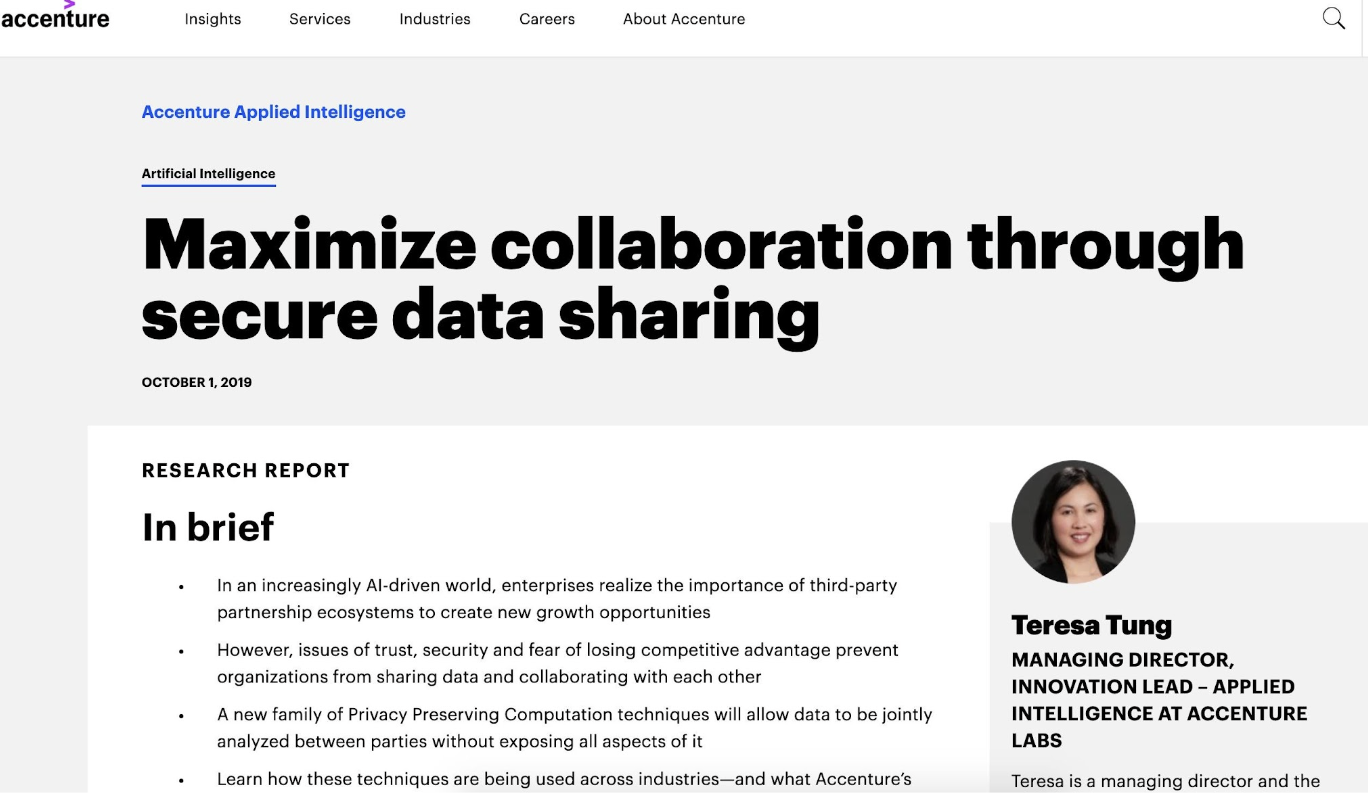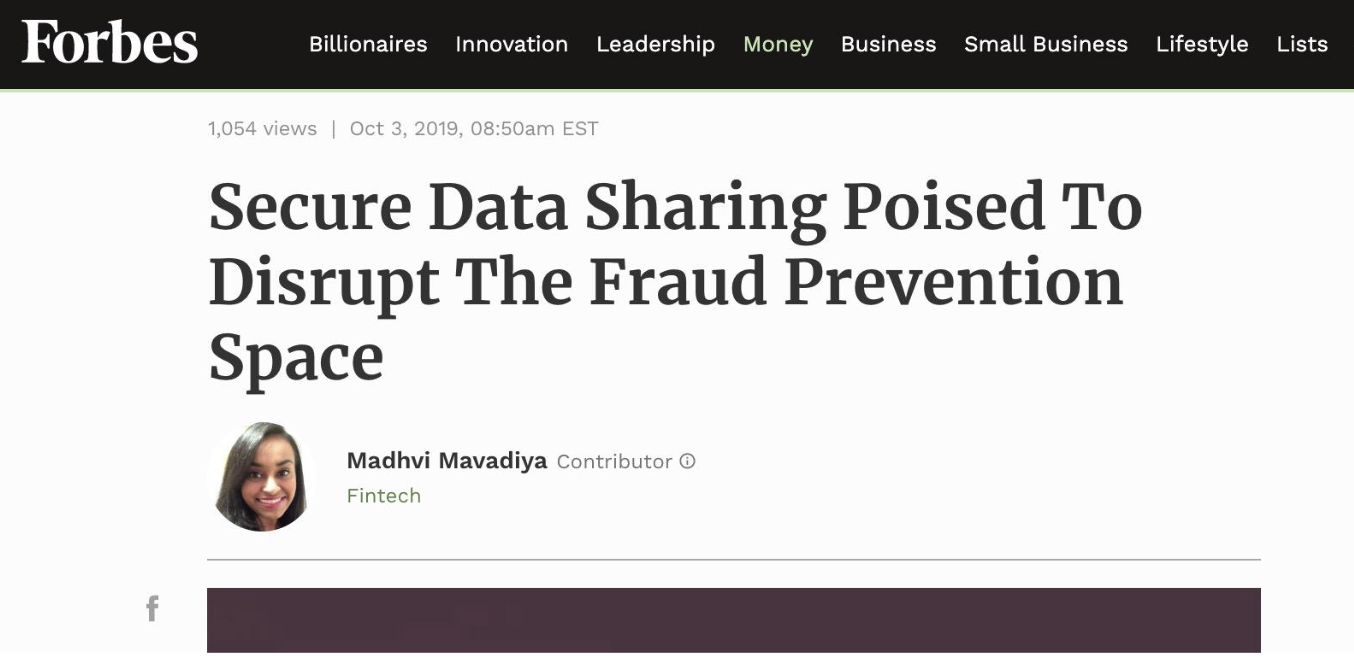AI/ML - Research
Keeping Your Data Private with Secure Multi-Party Computation - ML Research

Introduction
After a noteworthy paper on privacy-preserving techniques was published by the Alan Turing Institute: Privacy-Preserving Distributed Linear Regression on High-Dimensional Data, I joined a dedicated team to explore the landscape of secure data sharing. Our work contributed to a perspective published by Accenture, shedding light on the importance and mechanics of Secure Multi-Party Computation (MPC), which was later featured in Forbes: https://www.forbes.com/sites/madhvimavadiya/2019/10/03/secure-data-sharing-poised-to-disrupt-the-fraud-prevention-space/#4aca0e67bf73 .


Understanding MPC:
Secure Multi-Party Computation (MPC) is a fascinating technology that enables multiple parties to jointly compute functions over their inputs while keeping those inputs private from one another. It's akin to a group of companies combining their data to unlock valuable insights without actually revealing their sensitive information to each other. One relatable example is the Millionaire’s Problem, where two individuals aim to find out who is wealthier without disclosing their actual net worth, demonstrating the delicate balance MPC maintains between collaboration and privacy.
Key Characteristics of MPC:
- Environment — Operates securely within untrusted settings.
- Data Privacy — Ensures input data remains obfuscated while making the computed results available.
- Encryption — Maintains encryption during the computation process, revealing only the outcomes to involved parties.
Exploring Major Variants:
I delved into two primary forms of MPC:
- The Garbled Circuit: — Operates securely within untrusted settings.
- Secret Sharing: — Designed for multi-party scenarios, it involves dividing an encryption key among participants, enabling each to contribute to the computation securely and without access to the others' data.
Benefits and Limitations:
MPC stands out for its ability to facilitate secure data sharing among parties who may not fully trust each other or wish to keep their identities confidential. It's especially pertinent in scenarios where malicious intentions or compromised security are concerns. However, challenges such as computational costs, communication overheads, and the complexity of encoding business problems into compatible logical structures remain. Moreover, while MPC secures data during computation, it's not immune to data poisoning attacks, where misleading information is deliberately introduced to skew results.
Conclusion:
Participating in this research and seeing our findings recognized by notable platforms like Accenture and Forbes was a rewarding experience. While Secure Multi-Party Computation is still evolving, its potential to transform how we approach data privacy and collaboration is immense. As the technology matures, we can anticipate more robust applications, making it an exciting area to watch and contribute to.